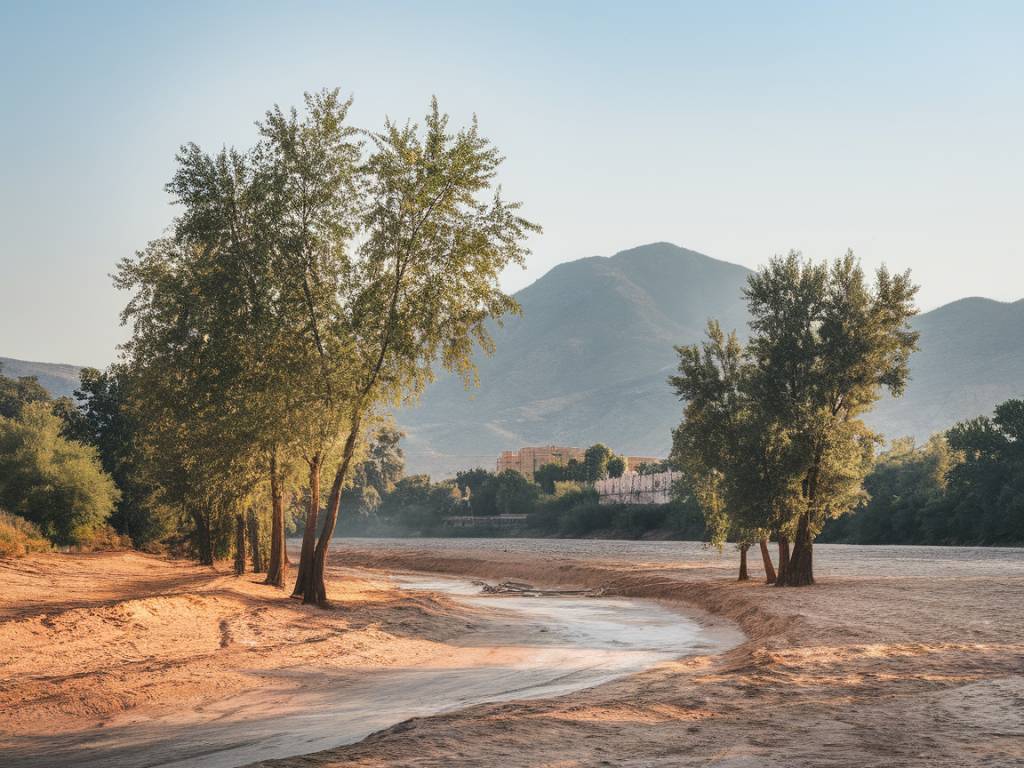The world of water is vast and enigmatic, much like a flowing river that dances between pebbles, shaping the land it graces. Yet, hidden beneath the surface is a tale often untold: the environmental impacts of poor water management. This narrative, while somber, offers insights into the delicate balance required to maintain our aquatic ecosystems. Join me as we dive into this crucial topic, exploring the ripples caused by negligence and the harmonious solutions that await us.
Understanding the Footprint of Water Mismanagement
Imagine a river, once teeming with life, now languishing under a blanket of pollutants. What brought this once vibrant ecosystem to its knees? Poor water management practices are frequently the culprits. By failing to properly manage water resources, we inadvertently step on an environmental butterfly whose wings trigger a cascade of detrimental consequences.
A primary consequence of poor management is water contamination. As urbanization expands, so too does the potential for pollutants to seep into aquatic environments. Industrial discharges, agricultural runoff impregnated with pesticides, and untreated sewage emblazon the waters with a tapestry of toxins. These pollutants disrupt the natural chemistry and can devastate the biodiversity that relies on these waters for survival.
The Vanishing Act of Aquatic Biodiversity
Just as a maestro depends on each instrument to create a symphony, the environment relies on biodiversity to maintain ecological harmony. But what happens when poor water management silences these critical instruments? Species decline, ecosystems unravel, and the once-resilient fabric of nature becomes threadbare.
For instance, consider the plight of the freshwater mussels, nature’s diligent biofilters. They purify water by filtering out particles, yet pollutants have turned their habitats uninhabitable. With their decline comes the deterioration of water quality, affecting everything from fish populations to the broader ecosystem services that clean water provides.
The Mirage of Proliferating Algal Blooms
Enter the green tide of algal blooms, an embodiment of nature’s imbalance. Fueled by excess nutrients—often from agricultural runoff—these blooms block sunlight and deplete oxygen levels in water bodies. The consequences? Dead zones where aquatic life struggles to breathe, akin to a marathon runner deprived of air.
Doomed fish float silently on the water’s surface, casualties of hypoxia. The haunting image of such scenes serves as both a wake-up call and a reminder that the chain of life is fragile. Through responsible nutrient management, however, we hold the power to dispel such mirages, restoring vitality to the waters.
Climate Change: A Catalyst in the Water Cycle
Consider the double-edged sword of climate change—accelerating both the scarcity and excess of water. Poor management acts as a magnifier, exacerbating the impacts of climate shifts. When water is not allocated wisely, droughts parch lands mercilessly, while unbridled floods engulf communities in a deluge of chaos.
Ironically, the mismanagement of water also contributes to climate change itself. Take, for example, how inefficient irrigation practices release greenhouse gases into the atmosphere. It is a vicious cycle, yet one we can interrupt through sustainable water management practices that lend strength to both the water cycle and our climate.
Navigating Toward a Sustainable Horizon
If poor water management is the storm, then sustainable practices are the rudder steering us toward calmer seas. Innovation is key. From advanced water treatment technologies that cleanse with precision to the harmonious integration of green infrastructure, these solutions promise a brighter future.
Picture a city where rainwater is harvested thoughtfully, watering urban gardens that serve both as green lungs and as sanctuaries for insects and birds. Imagine communities working hand-in-hand with technology to monitor water usage, reducing waste and fostering an ethos of conservation.
Embracing a Water-Wise Ethic
The narrative of water stewardship extends beyond technology. It calls for a cultural shift—a reevaluation of how we perceive and interact with water. Education and community engagement are the lifeblood of this movement. From schools nurturing the next generation’s water guardians to local organizations mobilizing for river clean-ups, the seeds of change are being sown.
Every drop saved, every pollutant prevented, every ecosystem restored contributes to a larger tapestry of environmental resilience. As we journey onward, let us remember that the chorus of life sings most beautifully when in harmony. Together, we can weave a narrative of hope and renewal, ensuring our water stories continue to flow, vibrant and unbroken.
This is the challenge and opportunity of our time—to restore balance, to champion sustainability, and to redefine our relationship with one of Earth’s most vital resources. The river of conscientious water management is one we must navigate, for the sake of our planet and future generations.


